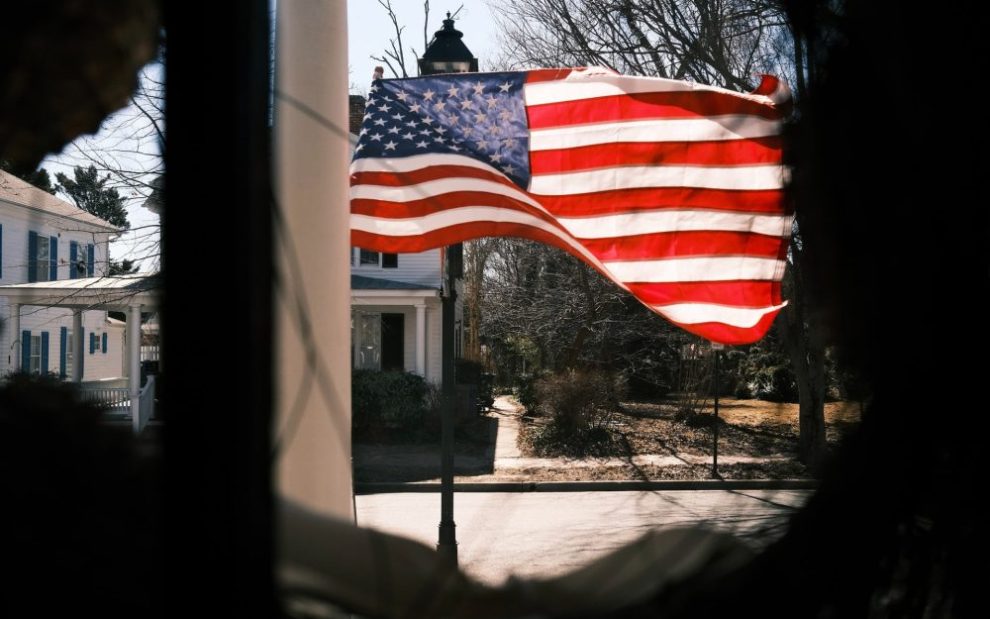As we approach the Fourth of July, it is worth giving some thought to how compatible our Catholic faith is with patriotism.
With some people, patriotism has fallen on hard times. A man I know summed up the view of many when he declared unequivocally that patriotism simply cannot be squared with the Christian faith at all. In his view, all patriotism is idolatry, and Christians are morally bound to abjure it as they would the worship of Moloch. Frequently, this belief is a reaction to the fact that others laud as “patriotism” what is actually nationalism.
Clearly, nationalism is incompatible with Catholic teaching. Nationalism is not love of country but hatred of all other countries. It is motivated by the demonic sin of pride, which entails enmity both to neighbor and to God. The sin of pride can never be squared with the Christian faith.
But what about patriotism? How can one pursue it in a healthy manner without it becoming a form of idolatry or nationalism?
The Catechism of the Catholic Church tells us, “The love and service of one’s country follow from the duty of gratitude and belong to the order of charity.” Likewise, Paul remarks to the Ephesians that God the Father is the one “from whom every family in heaven and on earth takes its name (Ephesians 3:15).
This is the germ from which the church’s understanding of patriotism grows. It means not adoration of the state nor the notion or “my country, right or wrong,” but the love of home and the gratitude we owe those who gave us so much.
From our home we receive a place, the language we speak, our education, a host of relationships with all those dear to us, libraries, pianos, ice cream trucks, fishing holes, fields of barley, sunrises and sunsets over landscapes that will live in our hearts till the day we die, the security to walk down the street without artillery shells raining down on our heads, vaccinations that keep us from dying of typhus, songs on AM radio on summer beaches, and a Mass we went to yesterday morning in a sleepy chapel with no worry that we might be shot or jailed for being there. For these and a million other things we have every reason to love our home and our country. There is nothing wrong with that, just so long as we do not turn that love into an idol.
Examples of healthy patriotism abound. In The Lord of the Rings, Bilbo Baggins expresses a beautiful patriotism for the Shire when he says that he loves the woods, the fields, the little rivers. Humphrey Bogart expressed a native New Yorker’s deeply patriotic sensibility toward the Yankees when he remarked that a “hot dog at the ballpark is better than steak at the Ritz.”
I’m a Seattleite, and you will never be able to dig out of my DNA my love for the rain, the sun, the forests, the mountains, and the salt air of Puget Sound. Nor, for that matter, will you be able to dynamite out of me the love I have for the people of my home. Nor for the various dialects, stories, songs, and patois of my fellow Americans nor for the wonderful places I have seen, from the San Juan Islands to the mossy trees of Savannah, Georgia, to the splendors of Yosemite. My love for my home in Seattle extends to my love for my home that is this country. And that ability of love to extend is the mark of all true loves.
The church regards this in much the same way as she regards our love of family: as a school for charity. Grace builds on nature, and our natural love of home is no exception. All healthy love of patria—of home, family, country—can be an occasion for learning to love our neighbor.
Because true love naturally leads not to contempt for neighbor but to respect for neighbor, true patriotism naturally leads to the love of the neighbor who comes from another country altogether. A patriot who loves his or her home naturally appreciates it when somebody else loves their home too.
When I married my wife, one of the most delightful experiences of our new life together was coming to love her family’s different customs. Our first Christmas party with her family was a joyous occasion precisely because I loved seeing how she loved her people as I loved mine, though they celebrated Christmas with different traditions.
In the same way, meeting people from other countries who love their native lands as I love mine is an occasion for building bridges, not walls. Real patriotism is about letting what I love meet what my neighbor loves and discovering both our commonalities and differences. This can be a deeply Christian experience. It’s why the universal church is accurately described (in the words of James Joyce) as “here comes everybody.” As Paul exults, “But now in Christ Jesus you who once were far off have been brought near by the blood of Christ. For he is our peace; in his flesh he has made both groups into one and has broken down the dividing wall, that is, the hostility between us” (Ephesians 2:13–14).
So as Catholics we are one, but it is the oneness of a body with all its varied organs operating in the fullness of their identities, including family and national identities. We rejoice at being from the places and people we call home and rejoice at the places and people our brothers and sisters call home as well.
In all this, Christian faith can certainly stretch its legs since the love of home and family—and country—is celebrated by the incarnation of the Son of God who joined the human family by becoming a member of the holy family and affirmed the goodness of his people, the nation of Israel, while also declaring that “many will come from east and west and will eat with Abraham and Isaac and Jacob in the kingdom of heaven” (Matthew 8:11). Jesus loves his home; prays the prayers of his people, including psalms and scriptures that celebrated Israel’s chosenness; and rejoices in the gifts God had given to his people and, through them, to the world.
However, Jesus also insists on a crucial caveat: that earthly ties and kingdoms must be subordinate to the kingdom of God. He uses shocking language to emphasize this: “Whoever comes to me and does not hate father and mother, wife and children, brothers and sisters, yes, and even life itself, cannot be my disciple” (Luke 14:26).
Jesus does not, of course, mean that we are to wish our family or country ill. He means that when the demands of family, kin, tribe, nation, or racial loyalty seek to trump the commands of God they are no longer good. The story of what happens when we fail to subordinate love of patria to love of God and turn the nation into an idol is written in blood across human history in atrocities such as the genocide of the Native peoples of the Americas, the Nazi murder of millions of Jews, and the Hutu/Tutsi bloodbath.
This is why patriotism has its limits. The way to make sure that it remains good and uncorrupted by nationalism is to heed the word of Jesus, who always places the love of neighbor (which includes love of country) second to the love of God. As God told Israel, “You shall have no other gods before me” (Exodus 20:3).
If you seek, as you should, to love your home, your family, your people, and your country in a healthy way, Jesus’ counsel is this: “But strive first for the kingdom of God and his righteousness, and all these things will be given to you as well” (Matthew 6:33).
Image: Greg Schmigel on Unsplash














Add comment